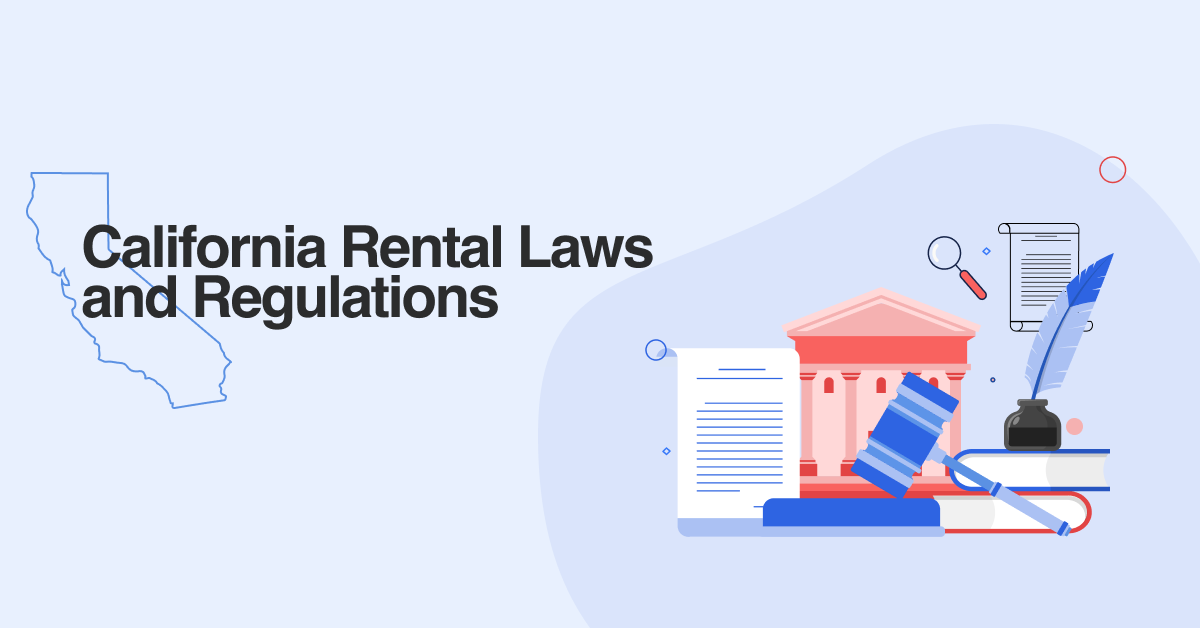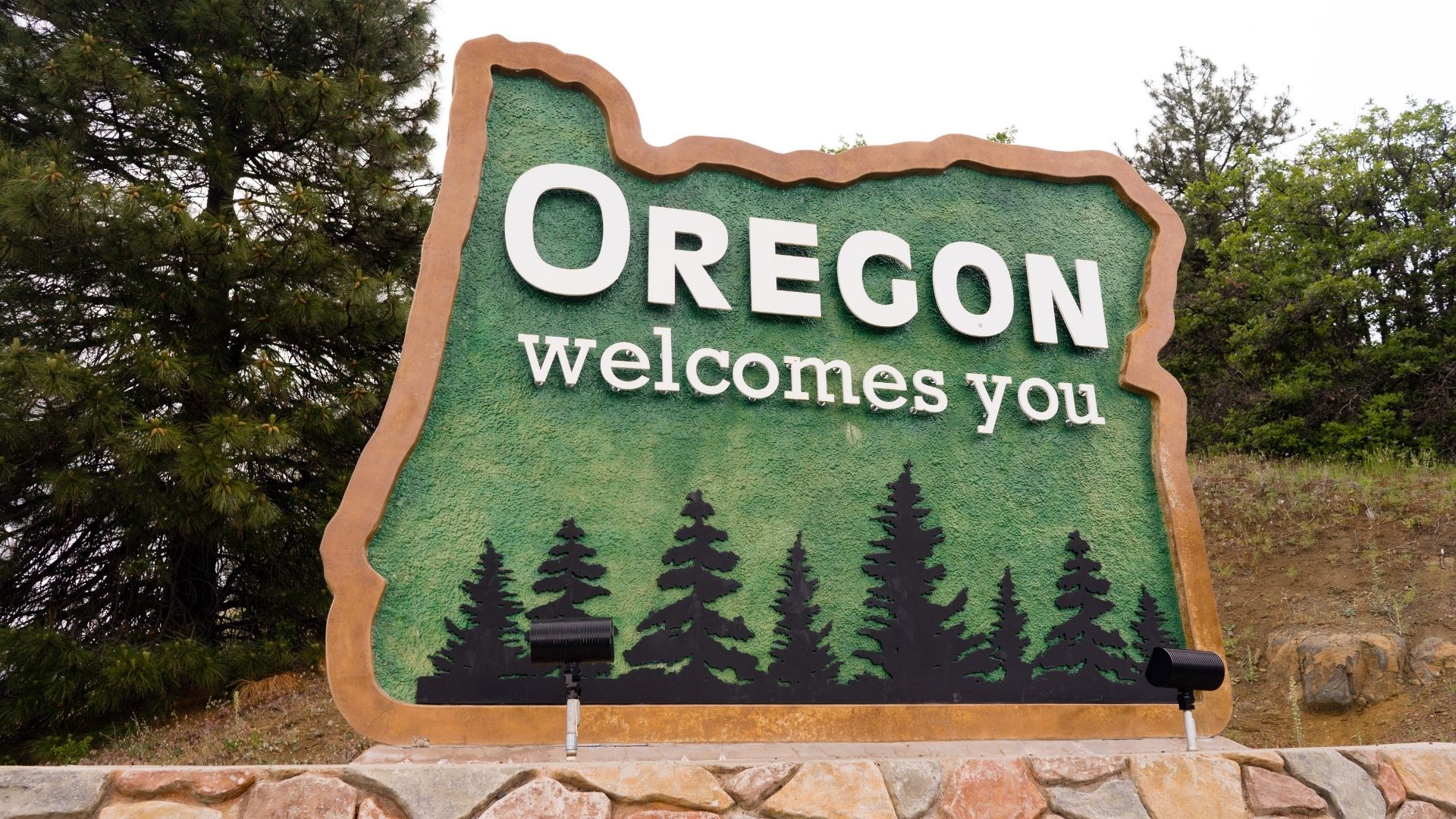
Disclaimer: This article doesn’t constitute legal advice, and landlords should not substitute this information for professional legal advice.
An overview of California rental laws
Whether you rent out individual units or entire homes in the Golden State, you should have an understanding of California rental laws.
California is a renter-friendly state, meaning renters can take legal action to protect themselves and their homes. Renters can exercise their rights if landlords fail to keep the rental property safe and livable. Regardless of where you own property, it’s essential to know and follow rental laws in your city or county since many local jurisdictions have in-depth laws that supersede state rental regulations.
This article will cover:
- Leases, rent, and fees
- Rent control
- Security deposits
- Notices and entry
- Utilities
- Pet laws
- Disclosures
- Low-income housing
- Eviction
- Court information
- Resources
- FAQs
Leases, rent, and fees in California
California rental laws include regulations for lease agreements, rent payments, security deposit collection, and more.
Lease periods in California
You do not need a rental agreement if you have short-term renters (renters occupying your unit for less than a year). However, It’s always in your best interest to create a written agreement to avoid conflict with renters, regardless of their length of stay.
You need a written lease agreement if you have renters who intend to stay for 12 months of longer.
After signing a lease agreement, you must provide your renters with a copy within 15 days of signing.
Late fees
In California, you can assess a late fee if you have a written lease and you don’t receive rent on the agreed upon due date. However, you can only charge what is ‘reasonable,’ and reasonable is what the renters’ late payment cost you. Late fees in California can’t be used punitively. You should also keep the following rules in mind:
- Grace periods: You don’t have to extend a grace period if the payment is a few days late
- Lease agreement terms: To charge any late fee, you must have late payment terms in your lease agreement
- Allowed late fee amounts: If a rent check bounces, you can charge up to $25 the first time. For every subsequent bounced check, you can increase the fee to $35
Withholding rent
California renters may withhold rent if a landlord does not maintain a habitable or livable premises. A habitability problem is one that threatens health or safety of tenants. The renter (or guests) also must not have caused the problem.
If landlords neglect to make essential repairs, California tenant rights state that renters can:
- Withhold rent
- Arrange for repairs themselves and deduct the cost from their rent payments
- Vacate the property without advance notice
- Sue the landlord
- Report the landlord to state or local inspectors
If the renter has contacted the landlord to fix the problem without result and they correct the problem independently, the renter can deduct the cost from the rent as long as they:
- Adhere to any local rules about the repair and deduct remedy
- Not use the repair and deduct remedy twice already in the past 12 months
- Not spend more than one month’s rent on the repair
Adjusting rent prices
Various rules related to increasing rent exist in California:
- Advance notice: 30 days minimum notice. If the increase is more than 10%, you’re required to provide a 60-day notice.
- Fair increases: State law prohibits discriminatory practices like raising rent only for renters of certain religions or races. California law also prevents landlords from raising rent in retaliation after occupants use their legal rights to request repairs or file complaints about the property.
Rent control in California
Since January 1, 2020, California has had statewide rent control. Regulations apply if you own qualifying units:
- Rent can increase no more than 5% plus inflation or 10% of the lowest rate charged during the prior 12 months, whichever amount is lower.
- You can increase the rent only one time in 12 months.
The state law exempts buildings constructed in the last 15 years (on a rolling basis).
If your city or county has its rent control regulations, they also apply. In some jurisdictions, city boards can adjust rents. Other jurisdictions allow you to rent out a property at the market rate after the previous renter leaves. In many cases, single-family homes and newer luxury buildings are exempt from these rules. Because rent control regulations can vary when you cross city lines, checking with your city to confirm local rules is important.
Security deposits and deposit management
There is no requirement to collect security deposits from renters. If you opt to do so, a statewide law limits how much you can charge. Some general rules include:
- You can charge up to the equivalent of two months of rent for an unfurnished unit
- Your security deposit can equal up to three months of rent for a furnished unit
- If you rent to a member of the military who’s on active duty, subtract one month of rent from the standard security deposit regulations. That means the security deposit can equal up to one month of rent for an unfurnished unit or two months of rent for a furnished unit
- In rare cases, you can charge a slightly higher security deposit. For example, if the furnished unit has a waterbed, the security deposit can reflect an extra half month’s rent
Interest on security deposits
California has no statewide rules about security deposit interest, but 15 rent-controlled cities require landlords to pay interest on security deposits they collect. Of the cities that require landlords to pay interest, only Los Angeles, San Francisco, and West Hollywood specify the interest rate.
Commingling security deposits with other assets
California law doesn’t prohibit landlords from commingling security deposits with other assets. That means you can feel free to hold these deposits together in a joint account. But if you own property in one of the cities that requires interest on security deposits, you may want to hold them in a separate account so you can calculate interest payments easily.
Returning security deposits
You’re required to return the security deposit within 21 days after your renters have returned their keys and vacated the property.
California law requires you to notify renters in advance if you intend to deduct any portion of the security deposit. You can withhold all or part of the security deposit for these issues only:
- Unpaid rent
- Damage that goes beyond standard wear and tear
- Cleaning the unit if the renter leaves it in an unsanitary condition
California notices and entry regulations
Landlords can enter units for valid reasons only and must provide notice of entry before entering occupied units (except in cases of emergency).
Required notice periods are:
- 24-hour notice before entering most occupied units
- 48-hour notice before inspecting the property when renters move out
Valid reasons for entry can include:
- Repairs and services
- Showing the property to new renters
- Inspecting an abandoned property
In most cases, you can enter the unit during regular business hours only, or between about 8 a.m. and 5 p.m.
Utility regulations
In California, landlords must tell renters whether the unit’s gas and electricity also serve other areas. If they do, you have to specify how you’ll calculate costs accurately. State law prevents you from shutting off utilities in occupied units.
California pet laws
When you own property, you can allow pets at your discretion. There’s no statewide law requiring you to accommodate animals. If you do allow pets in your units, you should know these regulations, which apply throughout California:
- You must accommodate service animals, which aren’t pets
- You can’t ask or encourage renters to declaw or devocalize their pets
- You can charge a pet deposit if the total upfront amount doesn’t exceed state or local security deposit regulations
Disclosures landlords must make in California
When you enter into a lease agreement in California, you are required to provide certain disclosures. Some of the most common notices include:
- Bed bugs: If the unit has a bed bug infestation, you can’t show or rent it. You also have to inform renters how to report a suspected infestation
- Death in unit: If the last renter passed away in the unit within the previous three years, you have to disclose it to renters
- Demolition: If you intend to demolish the property, you have to provide renters with written notice. State law requires you to do so before accepting payment for the property or land
- Flood hazards: If the property is in a flood hazard area, you have to inform renters
- Lead paint: You must notify renters about the presence of lead-based paint in properties built before 1978
- Mold: If you’re aware of any mold in the unit that could cause health issues for renters, you have to disclose it before signing the lease
- Pest control: If you contract a pest control company to maintain the property, you must share relevant details before signing a lease. You have to disclose pest control contracts, the products they use, and any related warnings
- Sex offenders: You must disclose information about sex offenders and include language related to Megan’s Law in your lease agreement
- Smoking bans: If you prohibit smoking on the property, you must specify where the ban applies. This requirement also applies to marijuana, which is legal in California
Business licenses for California landlords
California doesn’t require landlords to have a business license. However, some cities may require you to have a license before you can rent out units within city limits. Before signing a lease with your first renter, check with your city to confirm whether you need a business license.
Low-income housing in California
Most federal and state housing assistance programs have maximum income limits for eligibility to live in assisted housing and maximum rents and housing costs that landlords may charge to eligible residents. California’s Department of Housing and Community Development (HCD) publishes tables that show the official federal and state income limits used to determine these maximums for various programs.
State statutory limits follow what the U.S. Department of Housing and Urban Development (HUD) sets for the Section 8 Housing Choice Voucher Program. California’s state law defines “affordable housing cost” for low-income households as not more than 30% of gross household income with variation.
Eviction: California laws and regulations
If you need to end a lease agreement early, make sure you follow the state’s rules.
Notice period for terminating a lease early
If you end a lease early, you have to provide a written notice 30 days in advance to renters who have occupied your unit for less than year. For renters who have occupied the unit for more than year, state law requires you to provide a 60-day notice.
However, you have to provide only a three-day notice if renters do any of the following:
- Neglect to pay rent
- Break any part of the lease agreement
- Perform illegal activities on the property
- Damage the property
- Disturb or stalk other renters
Eviction notice requirements
If your renters haven’t paid and you have no choice but to evict them, make sure your three-day notice includes the following information:
- The total amount of unpaid rent
- Contact information for you or any other party that renters must pay
- Business hours during which you can accept payment, if applicable
California courts
If you need to collect overdue payments or evict renters, you may have to go to court.
In California, $10,000 is the maximum amount you can pursue via small claims court. Follow these links to learn more about small claims court in California and the state’s largest cities:
- California Small Claims Court
- Los Angeles Small Claims Court
- San Diego Small Claims Court
- San Francisco Small Claims Court
- State Bar of California
Resources for California landlords
Although many California landlord-renter laws apply statewide, some city and county regulations take precedence. Since rental rules are subject to change, it’s essential to check with the state, county, or city before you take any legal action.
If you want to read the text of a law itself, such as state security deposit rules, you will find access via the California Legislative Information website.
Use these helpful links to confirm current California rental laws and regulations:
Note: This article doesn’t constitute legal advice, and landlords should not substitute this information for professional legal advice.
FAQs about rental laws and regulations in California
Review these answers to some of the most frequently asked questions landlords have:
Is California a landlord- or renter-friendly state?
California is a renter-friendly state.
Does California require a written lease agreement?
Yes, in some instances, depending on how long a renter is renting at your property.
Does California have security deposit regulations?
Yes.
Are landlords required to provide receipts for rent payments or deposits?
Yes.
Does California place limits on late fees for rent payments?
Yes.
Does California have pet laws for renters?
No.
Do California landlords have to provide notice before entry?
Yes.
Does California require landlords to have a business license?
California doesn’t require landlords to have a business license. However, some cities may require you to have a license before renting out units within city limits. Before signing a lease with your first renter, check with your city to confirm whether you need a business license.
Are you considering renting out your California properties? Find out how Zumper can help you post listings, screen renters, and collect payments in one convenient place.



